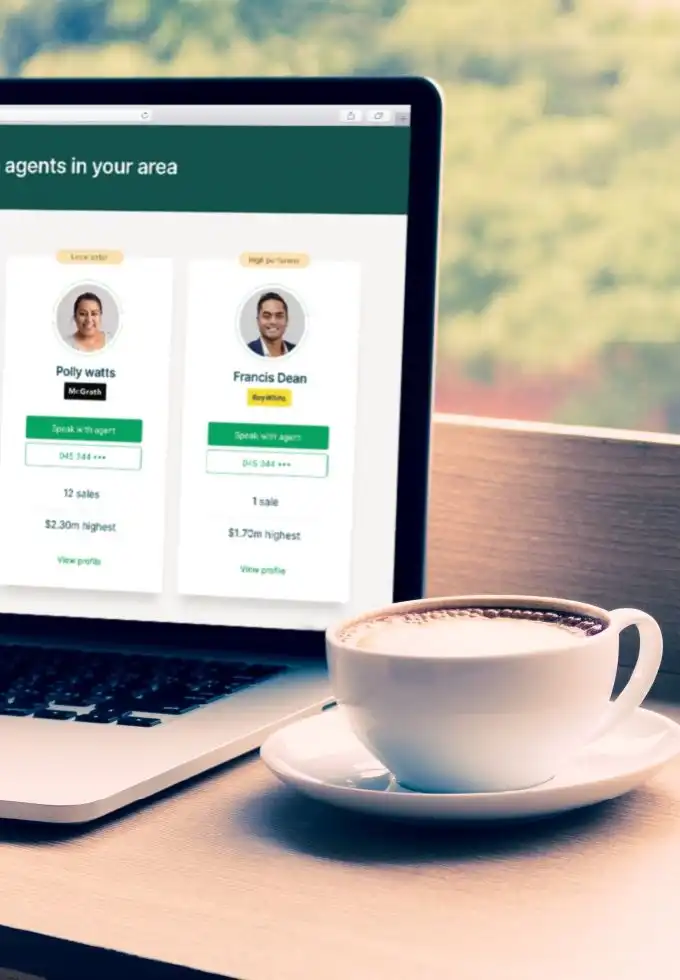When to sell an investment property
Like any investment, weighing up when to sell an investment property can be a tricky call to make - mainly because there are so many factors to consider.
It all comes down to timing.
Sell too early and you could end up missing a property boom, but holding onto a loss-making investment that is depreciating in value doesn’t make sense financially. Ultimately deciding to sell an investment property or hold it will come down to your personal circumstances and investment goals - and should never be a hasty or emotive decision.
Let’s look at everything you need to take into account - so you make the right call.
Should I sell my investment property or hold?
To help you decide when to sell an investment property start by asking yourself these basic questions:
- Is your property generating a profit? To calculate this accurately you need to factor in all your expenses/outgoings related to the property vs the income/rent you receive.
- Can you afford to keep and maintain the property? If your property is negatively geared, how long can you afford to cover all the costs of holding this asset?
- Have you calculated all the costs of selling? Many investors underestimate the costs involved in selling a property, including agent’s commission, legal fees, advertising, pest/building reports etc. There is also Capital Gains Tax (CGT) to factor into your budget.
Let's now look at some scenarios where it would make sense to sell your investment property.
Reasons to sell your investment property
1. Your circumstances change
If your circumstances change it could make financial sense to sell your investment property. Examples of this include if you get separated or divorced, and all joint assets need to be sold and split. If you have been made redundant or are unemployed there could also be financial factors which mean you have to sell your investment property. You may have also retired recently and want to simplify your life and reap the rewards (and capital growth) by selling your asset.
2. The local market has stagnated or is dropping
If your investment property is a location where values are dropping or stagnant, it could be a good time to cut your losses and sell. You first need to do your due diligence and establish that the local market has no prospects of recovering in the short/medium term - bearing in mind that property has a medium/long term investment window. Property data that could indicate a stagnant rental market include high vacancy rates and declining rental yields. An example of this is mining towns in WA, which have stagnated after the iron ore boom ended.
3. Your investment property is costing too much to keep
Investment properties do cost money for items like upkeep/maintenance/repairs, leasing expenses and periods when the property is vacant. If you are continually having to budget for these expenses, then it could be time to reassess and sell your investment property. You do need to bear in mind that it is unlikely to be worth selling if you have held the property for less than a few years.
4. You want to switch to a more lucrative investment
If you have found a more lucrative investment selling your current property could help fund this. This could be property in a different location with better growth prospects and returns. Here you would need to know what kind of return your existing investment property is generating to make it worthwhile - bearing in mind all the costs associated with selling.
5. You get a great offer or the market is hot
At the end of the day you may also get an offer you can’t refuse. Ideally this will be well over the current market value. This does mean you should know what your property is currently worth, and get an appraisal to be sure of its current value.
Let’s now look at some scenarios where it makes sense to keep your investment property.
Reasons to keep your investment property
1. Your property is modestly profitable
If your investment property is turning a profit, though not setting the world on fire you should really be looking to hold onto it. Property investment is a long game, and it takes time to accumulate value over the long term - which requires patience and no hasty decision making. Stick to your guns and you'll be rewarded with some tidy capital growth down the track.
2. You haven’t held the property very long
If you are getting itchy feet and want to sell your investment property, take a deep breath and recall when you bought it. If you’ve held it for five years or less, you should probably keep it. Why? Because the associated costs of selling are quite high - and could set you back financially. You will need to budget for real estate agent’s commission and advertising costs, legal fees, repairs and more - all while paying off your loan.
3. You can afford to keep it
Even if your investment property is negatively geared, if you can afford to cover the shortfall in rent/home loan repayments you should hold onto it. Often making the most of your eligible tax deductions are reason enough to keep an investment property. If it is positively geared or fully paid off then there is even more reason to keep this revenue generating asset.
If you have decided to sell, here’s what you need to know about the sale process.
Should you sell your holiday home?
While investment properties are usually rented out, holiday homes come with a different set of costs and considerations. If you're no longer getting regular use out of your getaway, or it’s becoming a financial burden, it might be time to sell your holiday home. Here are some common reasons owners decide to let go:
- You rarely use the property and it no longer fits your lifestyle
- Ongoing maintenance or body corporate fees are becoming too expensive
- You're missing out on capital growth or want to reinvest the equity
- You’ve experienced a major life change (e.g. retirement, downsizing, relocation)
- You’re facing limited rental returns in off-peak periods
- You want to simplify your finances or reduce your property portfolio
What is the current state of the market?
After a "short and shallow" downturn lasting barely three months, Australian property values shot back up to record highs in March.
According to CoreLogic's latest report, the widespread uplift came February's interest rate cut reinvigorated consumer sentiment around the country. Most notably, the downturn in Melbourne and Sydney reversed, bringing price growth back to both markets.
Lower interest rates are helping to lift confidence, though borrowing power is still a bit restricted and affordability remains poor, which means the recovery could take time. Now all eyes will be on the Reserve Bank of Australia (RBA) to see how far rates can fall in 2025 — the lower they go, the higher property values may rise.
Read our most recent property market update for more.
Ideal time of the year to sell an investment property
While there isn't a one-size-fits-all answer for the best time to sell since it really depends on your personal circumstances, selling in spring is a popular option.
With ideal weather, making homes look their best with blooming gardens and brighter days, spring sees a surge in buyers who want to move before the summer, giving you wider buyer net and possibly leading to a quicker sale.
With this said, other seasons like winter can also be a good time to sell. Less competition from other sellers can mean that your property has a chance to stand out more.
Ultimately, the best time to sell is when you’re ready and your home is in good shape.
How to sell an investment property
There are a host of practicalities and considerations you need to be across when selling your investment property. Our tips for success include covering these critical bases:
- Choose an experienced local real estate agent and have your property appraised.
- Decide on a sale price and sale method, based on the advice of your real estate agent.
- Your agent will advise on a marketing and advertising plan suited to your property and the local market. The objective is to get as many eyeballs on your property as possible.
- You may need to budget for renovations or repairs to your investment property, before it is listed for sale.
- If you are selling the property remotely you will need to source a local real estate agent who can help you handle the sale process.
- If your investment property is tenanted you will need to arrange access with the tenants during the listing, pre-sale and post-sale period. This may also include giving them notice to vacate, which varies from 30 to 90 days depending on what state you live in.
You also need to be across the tax implications when selling an investment property.
Capital gains tax (CGT) when selling an investment property
If you sell your investment property you become liable to pay capital gains tax, or CGT for short.
This is because for tax purposes the Australian Tax Office (ATO) classes any profit (or gain) you receive from the sale of your investment property as taxable income - which becomes part of your annual income tax assessment. You will be relieved to know that CGT does not apply to the property you live in day-to-day, what the ATO defines as, ‘anything that is used wholly or mainly for residential accommodation’.
Want to avoid paying CGT? You have two options - hold onto your investment property, or live in the property and make it your primary place of residence. You can also reduce the amount of CGT you pay by holding your investment property for longer than 12 months, in which case you get a 50 per cent discount on your capital gain.
When should you sell an investment property?
It might be worth considering selling your investment property when: your circumstances change, your local market is dropping/stagnating, your investment property is costing too much to keep, you find a more lucrative investment, you get a great offer or if the market is hot.
How much capital gains tax do you pay on an investment property?
When selling an investment property, you will be liable to pay capital gains tax. How much you pay depends on how long you have held the investment property and your income tax rate. If you have held the property for less than 12 months, you will be taxed on 100% of the capital gain using your income tax rate. However, if you have held the property for more than 12 months, only 50% of your capital gain is susceptible to capital gains tax.
What happens if you make a capital loss on an investment property?
If you have made a capital loss on an investment property, you can carry it forward to future periods and deduct it from any capital gains you may make. This means there would be less tax to pay on your capital gains.
Do you have to live in a house for a year before renting it out in Australia?
In most cases, you do not have to live in the house for a year before leasing it out.
What makes a good investment property?
When looking for a good investment property, it is important to consider factors such as easy access to public transport, a wide range of public amenities, close proximity to employment opportunities and property types with high tenant demand.
Can you buy a house before selling your own?
Yes you can. This would typically require a bridging loan, a short-term loan that enables you to purchase or build a new property while you sell your existing property.









